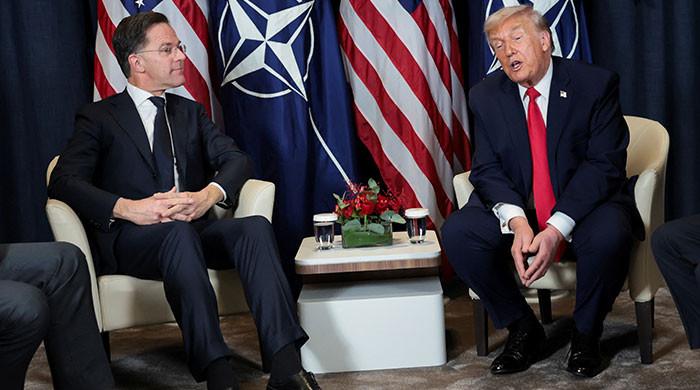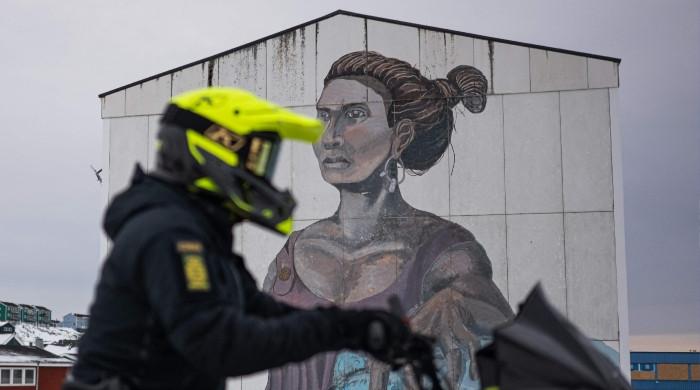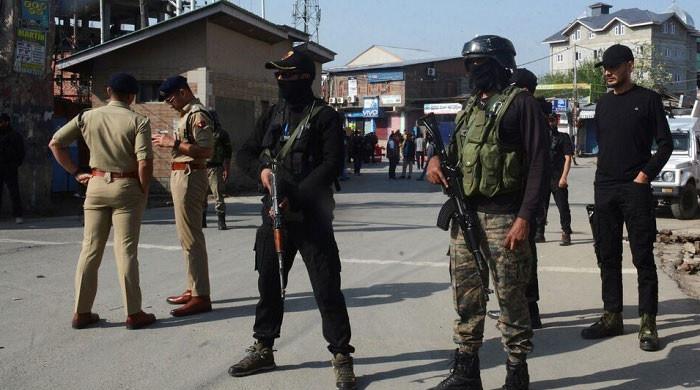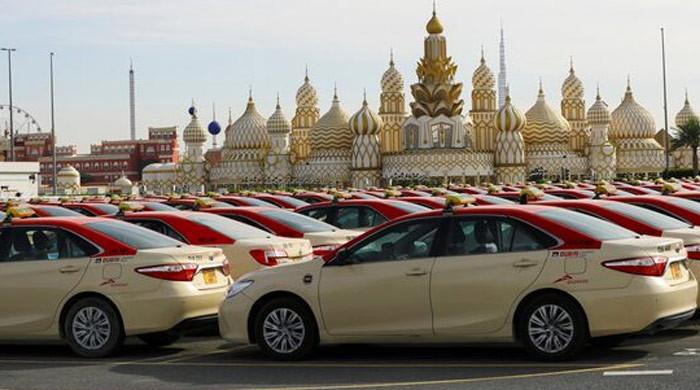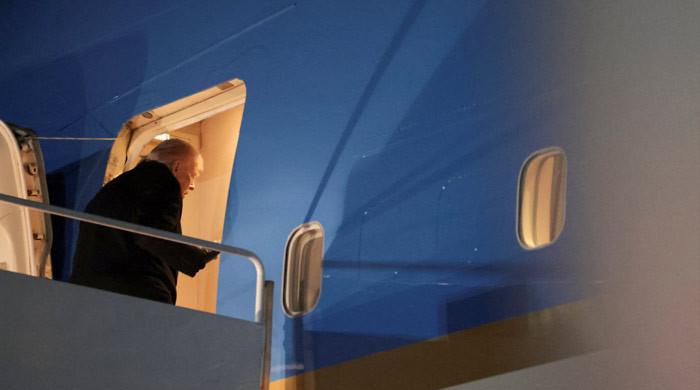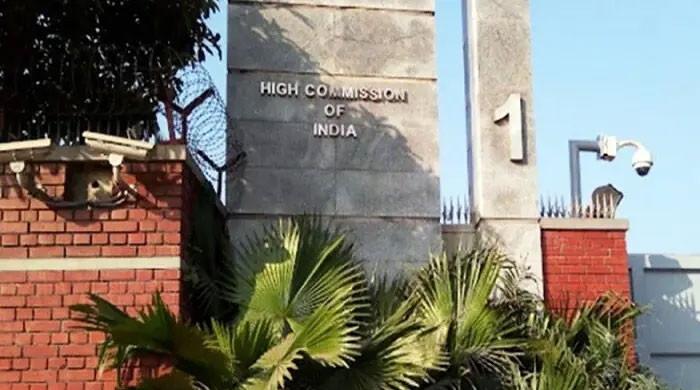Guns, stones, and now rap music – Kashmir continues to resist India
Kashmir's leading rapper opined that guns, soldiers, and protracted conflict provide the "street reality" that hip-hop is meant to capture
April 26, 2017

SRINAGAR: Kashmiris are known to resist the Indian state aggression in the occupied valley. Be it with a gun in the hands of freedom fighters or stones with the university students. But surprisingly the Kashmiri youth have started to explore a new channel to vent out their dissent against New Delhi – Rap music.
In a feature report by NPR music; Roushan Illahi - Kashmir's leading rapper opined that guns, soldiers, and protracted conflict provide the "street reality" that hip-hop is meant to capture.
His song "Dead Eyes" released on the occasion of India`s 68th Republic Day focuses on the eye injuries that thousands of Kashmiris suffered due to pellet bullets fired by security patrols during anti-military demonstrations commenced after the assassination of Kashmiri freedom fighter, Burhan Wani.
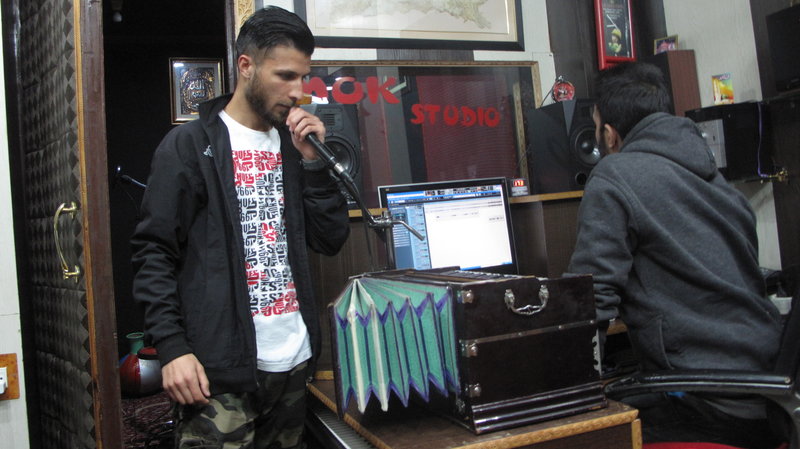
Aamir Ame co-wrote the viral hit "Dead Eye," a tribute to Kashmiris whose eyesight was damaged by pellet guns used by security forces to quell demonstrations. He calls it his first "political" song. - Picture credit: NPR music
In the broad daylight, I got blind
To light darkness, I will abide
I will pelt stones against innocent felony
Yeah, I lost my eyes while fighting tyranny
Aamir Ame, 23, co-wrote the track with two other budding rappers. He says it was his "first political song, an example of survival." And it went viral in the valley.
Their song “I Protest” has also made waves all across the occupied valley.
I protest!
Against the things you've done
I protest!
For a mother who lost her son
I protest!
I will throw stones and never run
I protest!
Until my freedom has come
I protest!
For my brother who's dead
I protest!
Against the bullet in his head
"When I came out in 2010, I was very blunt, I was very direct," Illahi says. "And that's what another tenet of hip-hop or rapping is. If you talk to any one of us, there is a lot anger. That anger stems from this hopelessness that nothing is going to change or nothing is going happen to Kashmir or that people are still going to get killed. And it's bound to give birth to dissent."
"It Shapes ... Your Personality"
A musician in the valley, Ali Saifudin, believes that the reactionary music is because of the anger found within the Kashmiris against the Indian state.
"It's just a natural sentiment, the sentiments on the streets," Saifudin says. "I see news of young men being shot, and I feel anger inside me ... I put all those feelings into a song."
A guitarist, Saifudin says he's been influenced by the music of Neil Young, Bob Dylan and Bob Marley. (He says it was Google that introduced him to their music.
Put your lungs out,
Go on and scream
For that's how you'll be heard
This ain't the time to sleep
Now wake up!
Open your eyes!
Take a deep breath
And realize
The time to talk is over
It is time to do
With whatever you got
You got to make it through
Enough with all the silence
The crimes and violence
The war outside
And the war inside us...
Anger is our voice,
Rage drives us
And we can't be controlled
There is a beast inside us.
His, this song was performed at Srinagar Cafe – a meeting point of young Kashmiri musicians.
The audience for these young musicians is mostly online, as the venues in Indian-occupied-Kashmir are controlled by the state.
Illahi, aka MC Kash, says he's "proud" of young musicians who are "keeping alive the memories of the Kashmiri people through their music." Illahi champions "a demilitarized Kashmir" and insists Kashmiris need to be able to "talk and feel free of any harassment or repercussions."
He said that his studio was raided in 2010. But this taciturn artist no longer directly talks against the military establishment — he self-censors. "In Kashmir," he says, "you have to make your own space, and then rely on your luck that you won't get arrested."
Today, Illahi's dissent is subtle. He has most recently teamed up with a rock musician in a piece called "Like A Sufi" that is part dreamy, part heart-pounding.
The song captures the mysticism of Sufis, who make up a sect of Islam. But the subtext of the Kashmiri conflict is hard to miss in the opening lines: "I await you / All the fallen / In the garden of remembrance / Like a Sufi."
The lyrics follow through: "Break free of the chains ... Twirling freedom, like a Sufi."





